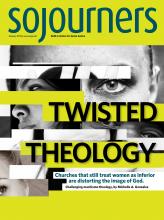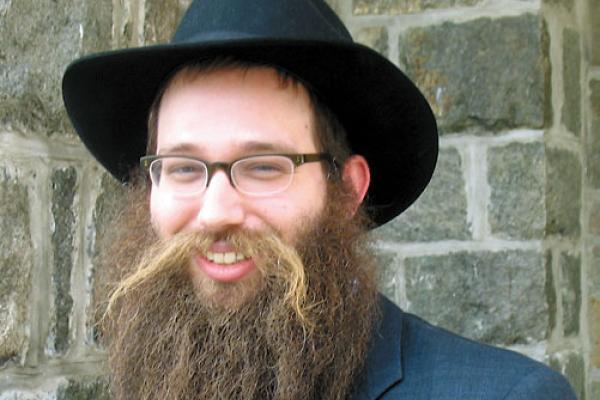I MEET Yehoshua November in an empty classroom in Touro College in Brooklyn, N.Y., where he teaches. The chairs and desks are piled to one side, like a barricade. We sit in a clearing beside the clutter, talking about his place as the only Hasidic poet—he is a 34-year-old member of the Lubavitch sect—on the American literary landscape, an entity ruled largely by secular academics far removed from the realities and sensibilities of ultra-orthodox Jewish observance and mysticism.
“They are the rabbis of poetry,” November laughs. He laughs so hard he doubles over in his chair. His laughter is as strange as it is infectious. Yet in all of God’s Optimism, his book that was short-listed for the 2010 LA Times Book Prize, there is not a single laugh line. His poems are serious, if lightly held narratives, some parable-like, most down to earth with a longing for heaven.
“Poetry is their vision of spirituality, their own religion, and they don’t want traditional religion brought in,” he says.
Even November’s long, reddish beard seems delighted at their rebellion against traditional religion. An antinomian Hasid and unashamed of it.
When I first read God’s Optimism, the poem I kept going back to was “Baal Teshuvas at the Mikvah” (baal teshuvas are secular Jews who return to religious observance), a poem of solidarity with those intimate others who came to Hasidism through the tunnel of the profane, commonly marked by drug use and sexual looseness, for the sake of spiritual passion held within a net of restrictions.
Read the Full Article

